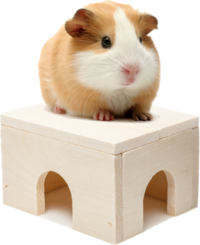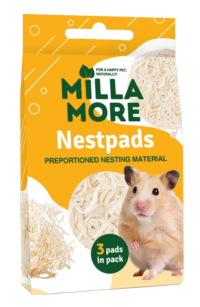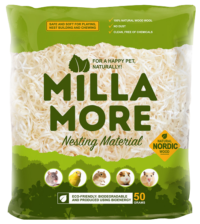10 Interesting Facts About Guinea Pigs
10 Interesting Facts About Guinea Pigs
Guinea pigs are one of the most popular pets in America. And for a good reason, they’re adorable, intelligent, and low maintenance, but did you know there are some interesting facts about these furry friends?
A lot of people don’t know there are many exciting things about guinea pigs. These tiny creatures have bigger personalities in smaller sizes. Read this article for some fascinating information and facts about guinea pigs.
Guinea pigs are not pigs
Guinea pigs have no relation to pigs. Many people think that guinea pig is a type or species within the pork family, but it’s really an outdated term for these cute cuties with short ears and long snouts. People also got confused because male guinea pigs are called boars, and females are called sows. But they get the name because of the cute squeaky noises that they make.
They eat their poop
Guinea pigs love eating their own poop. It’s an essential part of Guinea’s repertoire, and they will do anything for it, and it is actually not bad for them. Guinea pigs eat their poop because it’s an easy way to absorb all the nutrients they need. They consume their waste to get the necessary fiber for strong bones and vitamins like vitamin k that helps them heal from wounds more quickly, and vitamins that help them overcome stress.
Guinea pigs don’t like Rabbits
The most popular myth about keeping guinea pigs and rabbits together is that they can be good friends. Many people think this because it’s easy for them to find each other in the wild. Still, there are many factors that make these animals have a combative relationship with one another when living as companions. Guinea pigs and rabbits can’t be friends because they have very different personalities. Guinea pig needs are more focused on independence while rabbit requires companionship.
Moreover, rabbits can also bully guinea pigs. Rabbits are a potential source of disease for guinea pigs. They can carry chlamydia, fleas, and ticks, which could be very harmful to your guinea pig.
They like to live in herds
Guinea pigs are social creatures that enjoy human affection. But they should always be kept in pairs or small groups because they can become destructive when isolated from their friends and family members but do best with at least one other guinea pig for the company during the day. Guinea pigs communicate with each other using different noises to form a language of their own. These sounds are different when they are excited or in danger.
Guinea pigs crepuscular creatures
Guinea pigs have a very different sleep schedule than humans. While we need about 8 hours of uninterrupted rest, Guinea Pigs only take short naps throughout the day and night – which means they may be asleep for 15 minutes or less when sleeping in between their scheduled wake times. They are most active during the dawn and dusk and remain awake for almost 20 hours a day.
The most important thing to remember about guinea pigs is that they need a constant supply of food, water, and toys. They also enjoy hiding places in their enclosure and provide them with toys like Millamore Ball to your rodent it provides the best opportunity to play and work out and also reduces stress.
They can jump like Popcorns
Guinea pigs are constantly jumping. They can jump up and down, often turning 90 degrees in mid-air to land on their feet. This rick of guinea pigs is known as popcorning. Sometimes when they do this in excitement, it looks like they are performing breakdance.
Guinea pigs are a brilliant and fast learners
Guinea pigs are born with their eyes open, mouths full of teeth, and they can run after an hour or so after their birth. Baby guinea pigs are weaned in three weeks, and they constantly learn new things during this stage. Guinea pigs are not always as innocent and carefree animals as you might think. Like their tame counterparts, they can learn tricks, such as homing in on a target or pressing levers that reward them with food.
Odd number of toes
Guinea pigs are known for their odd number of toes. They have an extra toe on their front feet means four toes, and three toes on their back feet. This combination helps them balance and is also suitable for burrowing and tunneling. Keep your guinea pig safe by making sure there are no hazards around. Any ups and downs could cause them to fall and get injured, so don’t let it happen.
Lifelong companions
Guinea pigs live for quite a long time, with some reports of them living up to six or even ten years. Guinea pigs are the perfect pet for those who want a durable, long-lasting partner. They require minimal maintenance, care, and accommodation and mostly live for an average lifespan of up to seven years.
The best way to take care of your guinea pig is by providing them with a clean environment in which they can live. A daily routine for keeping the cages clean includes weekly cage inspections while wiping out any urine or feces deposits, feeding (fresh veggies if possible), checking on their health status, and dealing with any issues as soon as they arise help them live a long and healthy life.
Constantly growing teeth
Guinea pigs have teeth that constantly grow throughout their life. They grind against each other to keep them in shape. Guinea pigs are herbivores and need to grind their teeth down with food. You can also provide them with chew toys like
- Millamore bricks: Designed for chewing and promote dental health.
- Millamore balls: Especially designed for chewing and exercise their teeth and gums.
- Millamore Cube: Designed for chewing.
- Millamore Guinea Pig House: Designed to satisfy the instinct of rodent to flee and hide aslo good for gawing.
They consume a lot of fiber, which is why they eat more often than other animals in order to keep teeth growth in control.
Conclusion
We hope you enjoyed learning about the life of a guinea pig! They are so cute and cuddly, but they also have some strange habits. Guinea pigs love to eat hay, which is an important part of their lives; if you want to know more about these cute fluffy balls, you have to get one for yourself.




